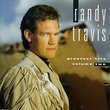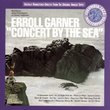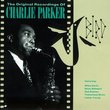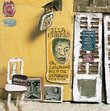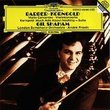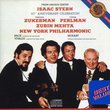| All Artists: Claude Debussy, Pierre-Laurent Aimard Title: Debussy: Images; Études Members Wishing: 0 Total Copies: 0 Label: Teldec Original Release Date: 1/1/2003 Re-Release Date: 10/7/2003 Genre: Classical Styles: Chamber Music, Forms & Genres, Etudes, Historical Periods, Classical (c.1770-1830) Number of Discs: 1 SwapaCD Credits: 1 UPC: 685738394029 |
Search - Claude Debussy, Pierre-Laurent Aimard :: Debussy: Images; Études
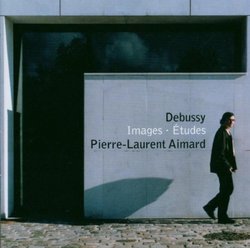 | Claude Debussy, Pierre-Laurent Aimard Debussy: Images; Études Genre: Classical
|
Larger Image |
CD DetailsSimilarly Requested CDs
|
CD ReviewsModernist Debussy J Scott Morrison | Middlebury VT, USA | 04/24/2004 (5 out of 5 stars) "It's hard to believe, listening to this CD, that Debussy's music was written almost hundred years ago. One reason for this is that Aimard seems to have re-invented the Debussy sound according to his own modernist lights. We've had early recordings by the likes of Cortot who played Debussy as a classic with little emphasis on the hammerless blur of sound, and then more recent ones by folks like Arrau or Gieseking who did the opposite and tend to make Debussy sound soft-edged. Aimard has re-emphasized his ferocity, especially in the Études. Even in the 'Images' that include such impressionistic favorites as 'Reflets dan l'eau' and 'Poissons d'or,' he tends not to stick around and glory in the hazy wash of sound usually associated with Debussy. That sound is not present in all that Debussy wrote, and it is a mistake to play it all that way. Aimard understands this. At times, especially in the Études, he sounds almost as if he were playing a modern like Prokofiev. I will admit my bias: I like this approach. Maybe all these decades of hearing mushy Debussy, hyper-atmospheric Debussy, has led me to this stance, but there you are. At any rate, Aimard brings something fresh to his approach. But it is not all of a piece. Sometimes, for instance as in 'Hommage à Rameau' he gets precisely the right balance of rhythmic precision and harmonic overlap. In others, like the études 'Pour les notes répétées' and 'Pour les sixtes,' fierce clarity gives us an almost Ligetian modernity. He gives all he plays rhythmic point and backbone. The Études have always been step-children in the Debussy canon. Many major pianists simply ignored them. Others openly disdained them. Fortunately recent pianists, like Michiko Uchida, have placed them high on their list. It is clear that Aimard has done the same, and for me these are the best overall recordings of them I've ever heard. Highly recommended.TT 75'06"Scott Morrison" Pierre-Laurent Aimard's Brilliant Performances of Debussy John Kwok | New York, NY USA | 12/13/2003 (5 out of 5 stars) "Pierre-Laurent Aimard's latest recording is a revelatory look at Debussy's most important works for the piano. In these thoughtful, lyrical performances, Aimard offers interpretations that tie Debussy stylistically to the likes of Prokofiev, Rachmaninov and Schoenberg, emphasizing the "modern" aspects of these works, without forsaking their Impressionistic atmosphere. It's hard for me to single out a favorite among these performances. I found all equally enjoyable. Stylistically they are different from Zimmerman's and Arrau's recordings, but still quite valid interpretations. This latest recording merely demonstrates the extensive range and interest Aimard has with regards to piano music, which ranges from Beethoven to the latest works composed by his mentor Pierre Boulez." Debussy as 20th century master Jeff Abell | Chicago, IL USA | 03/03/2004 (5 out of 5 stars) "It's easy to forget that Debussy wrote most of his works in the 20th century. His style has been so thoroughly appropriated into jazz and such things as film scores, that we can forget how genuinely original his works were when he first wrote them. Pierre-Laurent Aimard has not forgotten this, and clearly sees the links between Debussy and later French composers such as Messian and Boulez (whose works he also plays brilliantly). The result is gorgeous in every detail, and filled with flashes of surprise, as though the music were written last year, instead of nearly a century ago. And while I'm not going to throw away my Paul Jacobs recordings of these works (also exquisite), I find myself listening to Aimard over and over again. You will too."
|

 Track Listings (18) - Disc #1
Track Listings (18) - Disc #1
